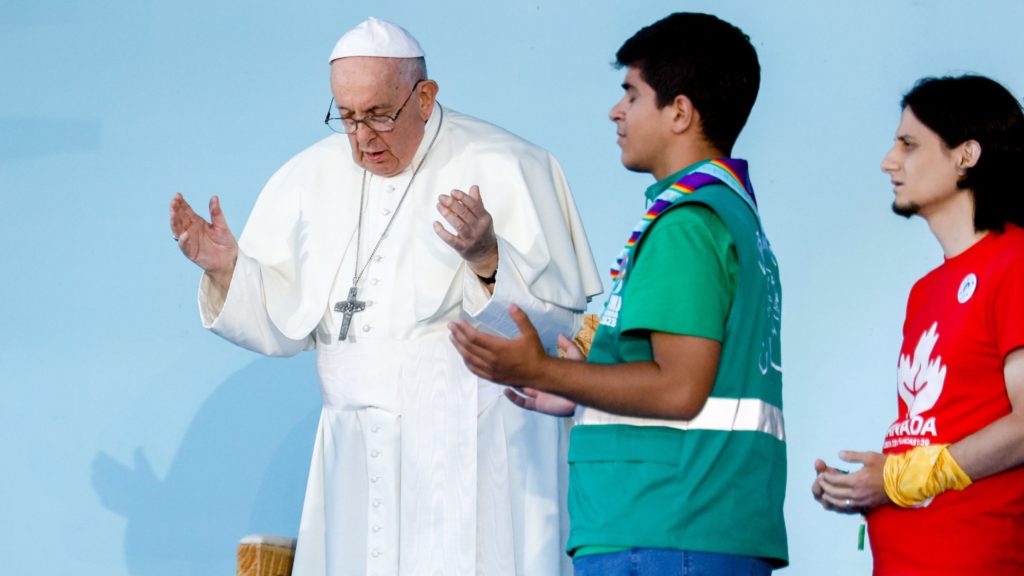While Pope Francis was visiting Portugal for World Youth Day, talk of future papal trips -- including to Kosovo and Argentina -- was making headlines as were some of his thoughts about the need for the Catholic Church to be open to all.
"We are working on Kosovo, but it's not definite," he told the Spanish magazine Vida Nueva in a wide-ranging interview released Aug. 4; he also confirmed that a trip to Argentina "is in the plans."
Answering questions from the magazine's staff -- not just the editorial team but also accountants, customer service workers and those who "put out" each edition of the magazine -- the pope spoke frankly about topics ranging from the synod to his condemnation of the so-called Doctrine of Discovery.
The pope mentioned how the U.S. bishops are currently working on an initiative of reconciliation with Indigenous groups, similar to a process undertaken by the church in Canada, where he met last year with victims of abuse in residential schools primarily operated by Catholic clergy and religious orders.
Discussing the Vatican's efforts to bring peace to Ukraine, he said he hopes to send his envoy, Italian Cardinal Matteo Zuppi -- who has already meet with church and government officials in Ukraine, Russia and the United States -- to Beijing next, since China and the United States "have the key to reduce the tension of the conflict."
"I am thinking of designating a permanent representative to be a bridge between Russian and Ukrainian authorities," he added.
A Vida Nueva staffer commented that since Pope Francis' election in 2013 they believe a bit more in the Holy Spirit.
"I am a victim of the Holy Spirit," the pope responded. "I thought I was going home after the papal election."
In fact, the pope said that just before the first vote of the conclave he was almost shut out of the Sistine Chapel since he was caught up in conversation with Cardinal Gianfranco Ravasi, and someone shouted to them: "Are you coming in? Because I'm shutting the door."
"I share this so you can see that the Holy Spirit exists, and I think that he put me (here)," he said.
Asked about the ongoing synod process, the pope said that he was recently talking with a religious sister over the phone who asked him whether the upcoming Synod of Bishops would change Catholic doctrine.
"Dear, who put that idea in your head?" the pope said he responded. "It's about moving forward to recover that synodal dimension that the Eastern church has and that we lost."
Yet he said there is no need for a third Vatican council since "Vatican II hasn't been put into action," in part due to a fear by "old Catholics" who even at the First Vatican Council called themselves the "depositories of the true faith."
Speaking about trends toward traditionalism, the pope said young priests adopt rigid mindsets "because they are afraid of the time of insecurity that we are living in," and underscored that they are "good people who want to serve the Lord."
Pope Francis said he knows he is "a pebble in the shoe" of many people, especially those who want to exploit the poor, but he believes he is following the Gospel.
And, as he said repeatedly to young people in Lisbon, he insisted in the interview that the church must be open to everyone.
"If the church closes itself, it's not the church," he said.
"That's why it doesn't matter to me that some people throw it in my face when I receive transsexuals at the Wednesday general audiences," Pope Francis said.
The first time a Little Sister of Jesus brought a group to the audience, he said, "they came out crying, saying that I had given them a handshake, a kiss -- as if I had done something exceptional. But they are children of God!"

